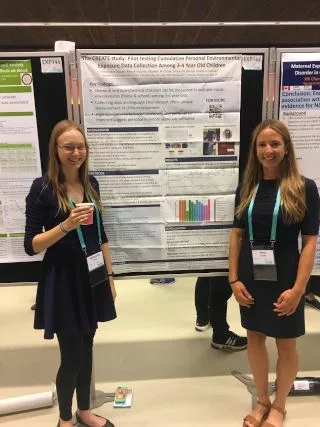21st century medicine helps Amish deal with rare, inherited illnesses
LA FARGE, Wisconsin – There is no car in the driveway, neither phone nor electricity in the house. Handmade clothes dry on the line.
From Aug. 25-28, SHOW team members Kristen Malecki, PhD, MPH; Amy Schultz, MS, and Alex Spicer attended the International Society for Environmental Epidemiology (ISEE) Conference in Utrecht, Netherlands.

Each year, the ISEE conference attracts the world’s top environmental scientists, public health professionals, and industry representatives to discuss new developments in the field. The 2019 theme “On Airs, Waters, Places” explored topics such as global warming, cobalt mining, and examples of intervention strategies employed in countries around the world.
The SHOW team presented two posters with some of the program’s recent findings. One poster highlighted new methods to collect air composition and noise exposure data for the CREATE pilot study. The Cumulative Risks, Early Development and Emerging Academic Trajectories (CREATE) study focuses on how children develop based on their surroundings.
A second poster focused on differences in the gut bacteria among urban and rural populations. Based on the analysis, whether or not a person uses primarily private well water is the best indication of variability in the microbiome between these two populations.
Malecki was also invited to speak on how different sources of fine particulate matter (or PM2.5) contribute to respiratory health in Milwaukee.
Team members were excited to share these findings on an international scale. The researchers received valuable feedback and forged new relationships for future work using SHOW data to explore environmental health risks.